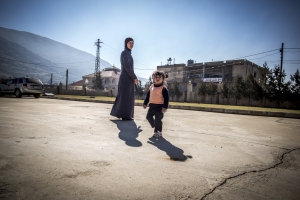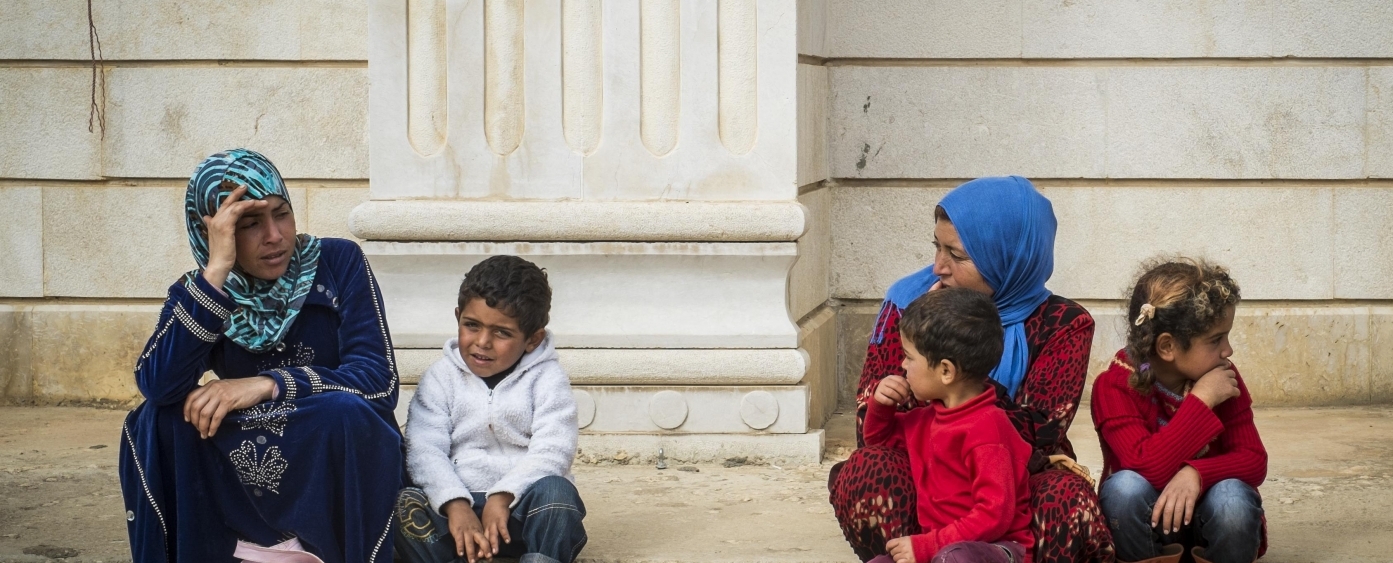MHAW: Orange blossom and green fields
Published 17th May 2019
Nada was fond of orange blossom, and green fields.
She dreamed about learning the piano, she loved the way the music notes could speak to a person’s soul. She believed in another version of reality, a reality far away from the reality she had to suddenly face.
Nada is 25 years old, a mother of two girls, and a Syrian refugee. She comes from a village called Ghouta. As she described, Ghouta is “a village that you recall even if you are far away… recall the smell of the earth and the beauty of its blue sky.”
In 2014, she had to move to Damascus because her green land had transformed into military dark green. Her nightmare started when she had to escape to Lebanon because her husband had been abducted. They took him from the house, leaving her alone with two little girls, who were just three and one years old.
Her husband’s family, who had also escaped to Lebanon, asked her to live with them. She followed them with her two girls to Bekaa valley. She had to leave her parents behind.
From the deadly war she moved to a personal battle, fighting mental health issues. A fight that doesn’t leave apparent wounds behind.
During her first year in Lebanon, she felt that like there was no tomorrow. She felt as if she was stuck, while the rest of the world continued moving. She felt like she was drowning in loneliness, facing continuous harassment, feeling unworthy, and losing any hope of return.
She tried to kill herself many times. She wanted to have control at least over something in this unsteady reality.
She felt she only had control over ending her life. But all her attempts failed.

In 2014, Nada was referred to Fatima, one of Doctors of the World’s case managers. At first, she found it difficult to discuss what she had been through, but day after day she started opening up.
She began to feel that she could trust Fatima and that finally she could talk to and be heard by someone. It made her feel like someone cared to listen, and that was more than what she was used to.
Soon she shared with Fatima that her husband’s family were mistreating her, and her landlord was sexually harassing her. Fatima referred Nada to Noelle, our psychologist, and together they provided Nada with the comprehensive care she needed.
Doctors of the World’s team linked her to organisations that could support her. This eventually led Nada to find employment. By saving her new earnings, within a year she was able to move with her girls into their own rented house. She was finally independent, and free from mistreatment.
Now, Nada recalls how, through this support, she was able to breathe easily again. She never imagined that mental health mattered that much. She told us: “When the war takes away all the colours, mental health support helps in bringing them back”.
Nada is still struggling with many challenges, but she is more resilient and stronger, and she feels she can cope with these challenges. She wants to go back to Syria once the green fields are back.
She plans to visit her parents, but she is afraid to see the colours of Syria now.
